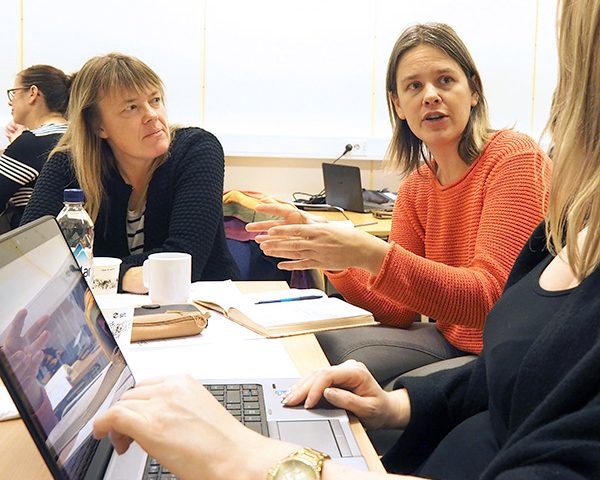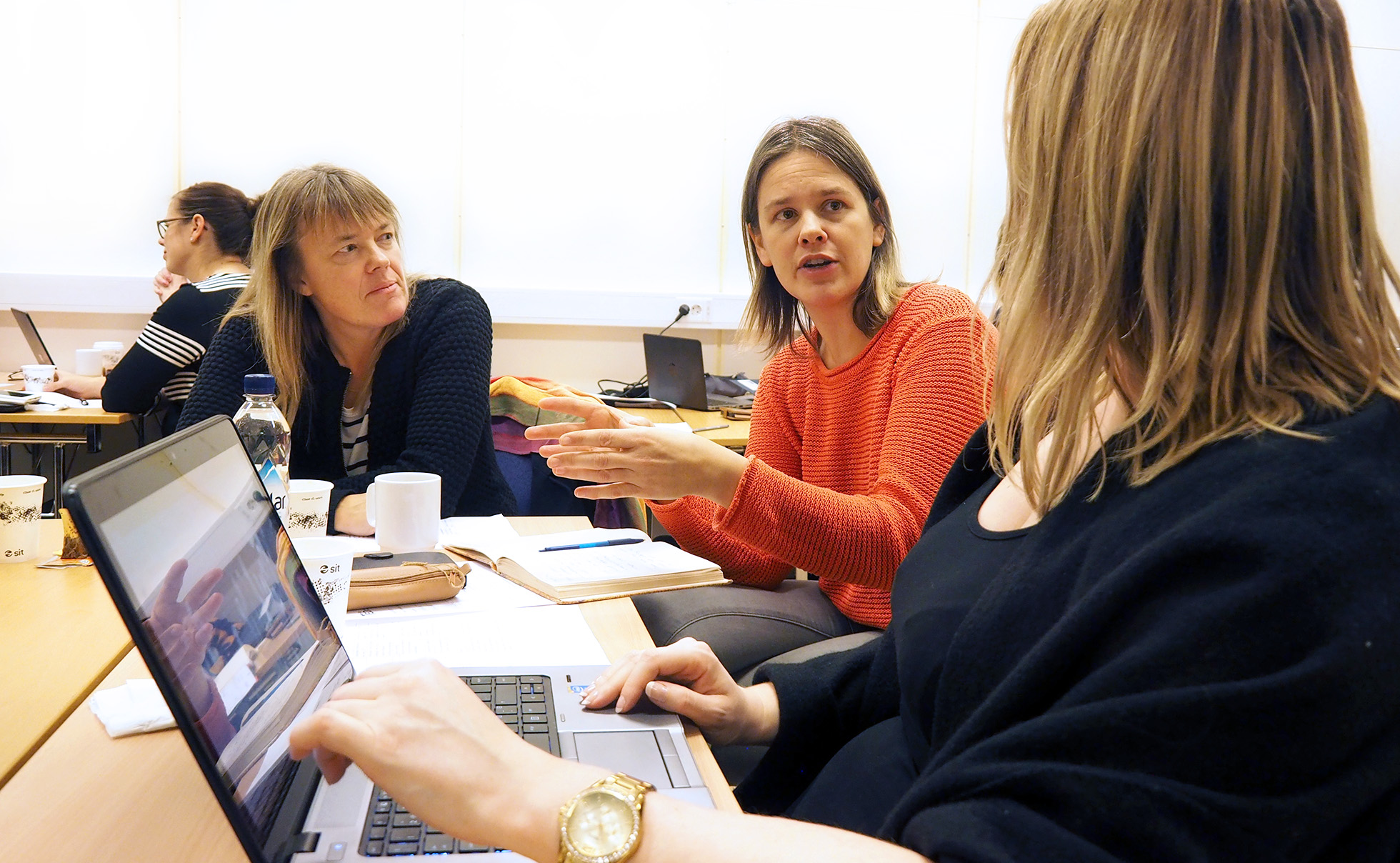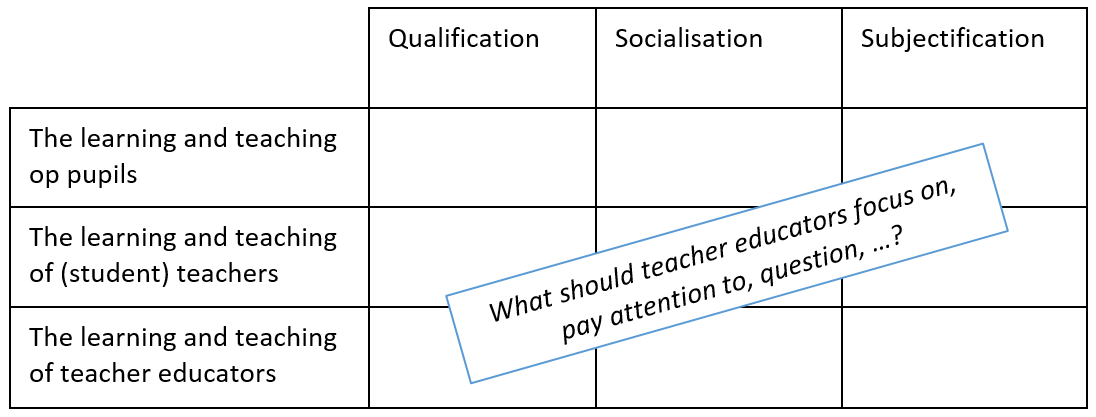The teacher educator as an agent of (social) change

Story-telling – a means and a method
November 23, 2017
Adolescence psychology in school-based teacher education
January 15, 2018The teacher educator as an agent of (social) change

Reflections on the purpose of research in teacher education
Spending some leftover hours at Oslo Gardermoen on an early Thursday morning, waiting for my airplane to Amsterdam, seems like a good opportunity to make a contribution to the InFo-TED site. At the same time it is a good way to reflect on the experience I had yesterday with one of the NAFOL seminars in North Norway.
NAFOL is an unique programme run by the collective Norwegian universities and generously funded by the Norwegian Research Council. It is a well-organized PhD school for teacher educators providing each year 20 teacher educators with the opportunity to start a four year PhD programme. Through structured seminars, peer feedback, exchanges with Teacher Education (TE) experts from all over the world and networks with PhD students from other countries, a very inspiring and stimulating environment is created to develop research expertise of individual teacher educators in Norway. Through the programme, a national core group of teacher educators is established that can play a key role in strengthening teacher education in Norway.
I felt privileged to take part in and to contribute to one of the NAFOL seminars and envy the Norwegians for having such a well-structured and inspiring programme. Within Dutch TE institutes quite some TEors are involved in PhD work (as I did myself between 2011 and 2014), but there is little interconnection between those individual PhD students/TEors. I need to discuss with colleagues what the possibilities are to take some of the NAFOL elements to the Netherlands.
During the NAFOL seminar my contribution was on ‘the purpose of teacher education’, using a model I developed with some colleagues, in which we combined Biesta’s notions of qualification, socialization and subjectification (Biesta, 2014) with the three contexts that we as teachers of teachers have to relate to: the learning of pupils and how to teach them, the learning of (student) teachers and how to teach them, and our own learning. Combining these two elements, we created a framework that does not intend to separate the three core domains of Biesta, but that can help teacher educators to reflect on their work, on the things they find important and on how these things can be recognized within their daily work.
While discussing the concept of socialization, we understood it as the way in which pupils, (student) teachers and teacher educators do not only feel part of society (both large and small: society as a whole, the professional community of teachers or teacher educators, and the local community of the school of university), but also feel responsible for that society and for critically contributing to and shaping that society. For me, this is the core of my understanding of ‘the teacher educator as an agent of social change’.
And here my reflection on PhD studies for teacher educators and on research based teacher education in general start. During the NAFOL seminar I realized that the question regarding ‘the purpose of teacher education’, does not apply only to my regular work as teacher of teachers, but also to my research activities: What is ‘the purpose of research in teacher education?’ This raises the question why we emphasize research in teacher education and research qualifications of teacher educators so much? Is research by teacher educators a goal in itself? Is it meant to strengthen the research competences of teacher educators to support student teachers in their Bachelor‘s or Master’s theses? Or is it just a means to improve the academic status of teacher education in the academic world? These purposes seem to me as quite instrumental perspectives.
For me the concept of the teacher educator as a agent of social change, implies that teacher educators should be focused on stimulating change and improvement in teacher education, schools and society. That focus should not only shape our teaching of student teachers, but also our research activities. This has implications for the research projects that we undertake. When research by teacher educators intends to contribute to change and improvement of practices in teacher education, schools and society, our research projects need to be understood as interventions. In the design of PhD or other research projects, not only academic requirements regarding validity should be taken into also account but also criteria that contribute to interventions and change in universities, schools and society. Such criteria deal with questions like what the possible impact is of the research study, how the research activities themselves can act as catalysts for change in teacher education, schools of society, to what extent colleagues and (student) teachers feel relevance and ownership toward our research questions and research designs, and how they are involved in the writing of recommendations based on the outcomes of our research projects, taking into account their expertise and perspective.
During the discussions I had with a small group of NAFOL PhD students yesterday it became apparent that although NAFOL created a strong community of PhD students and alumni, some of the PhD students were rather isolated within their own institutions. This isolation can limit their impact on practices in teacher education, schools or society and strengthen existing gaps between practice and research. The realization of this isolation made them question not only their present role during their PhD studies, but also after finishing their PhD, how they as experienced teacher educator-researchers could contribute to change within their own institution or the schools they co-operate with.
This is something that teacher educators cannot do just on their own. Effective change is a collective challenge, which requires likeminded colleagues. In that respect the Norwegian NAFOL participants are lucky: the NAFOL programme has provided them with several colleagues that have been engaged in the same programme, creating a critical mass with their institutes.
References
Biesta, G. (2014). The beautiful risk of education. London: Routledge.
Geerdink, G., Geldens, J., Hennissen, P., van Katwijk, L., Koster, B., Onstenk, J., Pauw, I., Ros, A., Snoek, M., & Timmermans, M. (2015). De kernopgaven bij het opleiden van leraren: kwalificatie, socialisatie en persoonsvorming van leerlingen, studenten en lerarenopleiders. [ The purpose of education teachers: qualification, socialisation and subjectification of pupils, student teachers and teacher educators (PDF) ]. (only available in Dutch)






